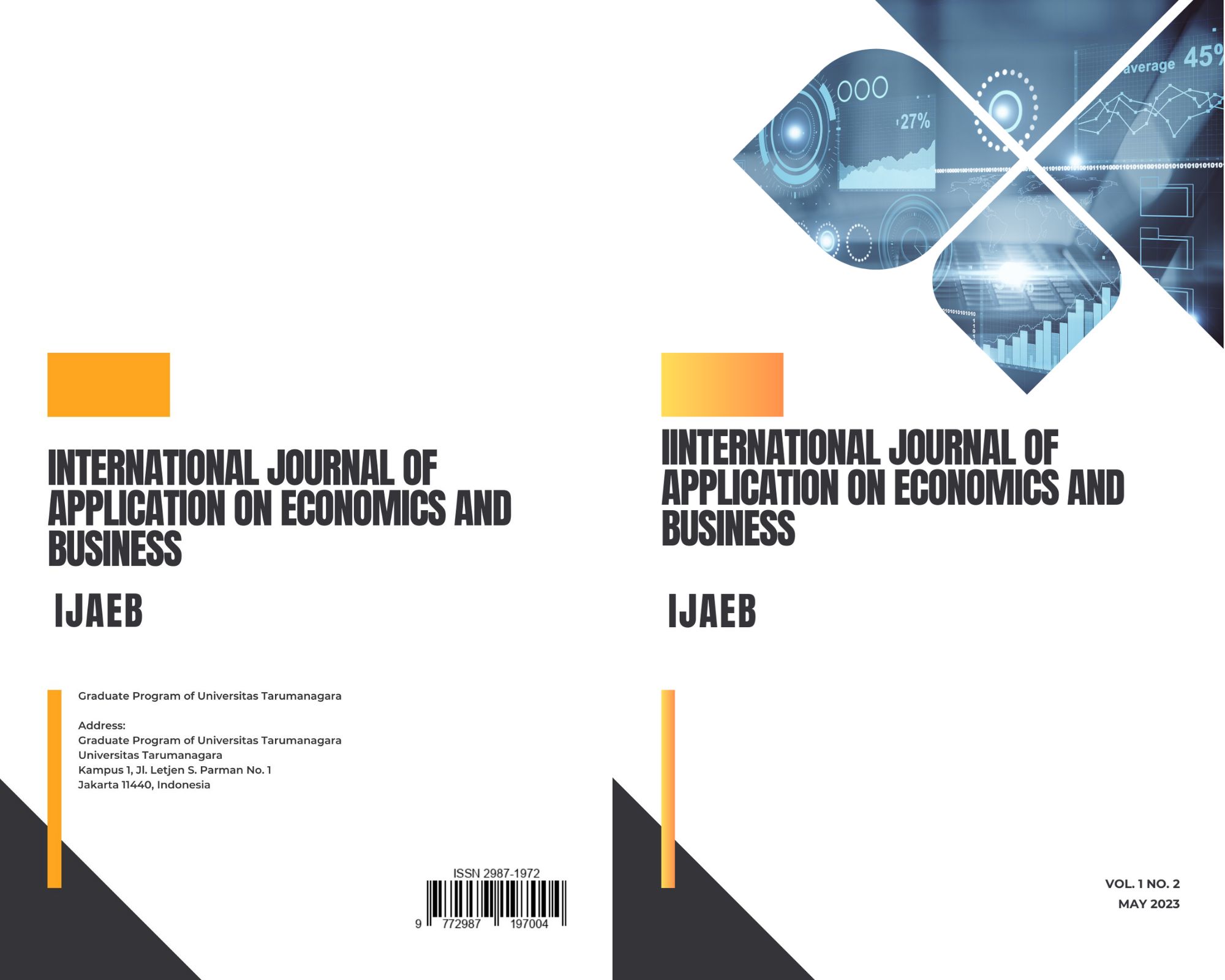INDONESIAN STOCK MARKET REACTION BEFORE AND AFTER THE ANNOUNCEMENT OF FIRST COVID-19 CASE
Main Article Content
Abstract
This study aims to test whether the event of the announcement of the first confirmed case of COVID-19 in Indonesia on March 2, 2020 affected the Indonesian stock market. A total of 119 samples used in this research event study were taken from the share prices of banks, transportation, and consumer good companies listed on the Indonesia Stock Exchange during the 21-day estimation window. The samples were taken using purposive sampling techniques and then the data was analyzed using the Statistical Package for the Social Sciences (SPSS) ver. 28. One Sample Kolmogorov-Smirnov test is used as a data normality test and hypothesis testing is conducted using the Paired-Sample Wilcoxon Signed Rank test. The results showed that there was no significant difference in the average abnormal return of transportation companies and banks before and after the announcement of the first confirmed case of COVID-19 in Indonesia. Meanwhile the average abnormal return of consumer goods companies showed significant difference before-after the first confirmed case of COVID-19 in Indonesia is announced.
Article Details

This work is licensed under a Creative Commons Attribution-NonCommercial-ShareAlike 4.0 International License.
This journal provides immediate open access to its content on the principle that making research freely available to the public supports a greater global exchange of knowledge.
IJAEB by Graduate Program of Universitas Tarumanagara is licensed under a Creative Commons Attribution-NonCommercial-ShareAlike 4.0 International License.. Permissions beyond the scope of this license may be available at https://journal.untar.ac.id/index.php/ijaeb
References
C. Wolski, “Five Factors or Events that Affect the Stock Market,” chron.com, Feb. 12, 2019. [Online] Available at: https://smallbusiness.chron.com/five-factors-events-affect-stock-market-3384.html [Accessed October 28, 2021].
R. S. Andriani, “Ringkasan Perdagangan 2 Maret: IHSG ‘Terinfeksi’ Corona, Rupiah Mampu Rebound,” bisnis.com, Mar. 2, 2020. [Online] Available at: https://market.bisnis.com/read/20200302/7/1208110/ringkasan-perdagangan-2-maret-ihsg-terinfeksi-corona-rupiah-mampu-rebound [Accessed October 28, 2021].
E. F. Fama, "Efficient Capital Markets: A Review of Theory and Empirical Work," The Journal of Finance, pp. 383-417, 1970.
N. N. Taleb, The Black Swan: The Impact of the Highly Improbable. US: Random House, 2007.
J. Hartono, Teori Portofolio dan Analisis Investasi. Yogyakarta: BPFE Yogyakarta, 2014.
P. He, Y. Sun, Y. Zhang, and T. Li, "COVID–19’s Impact on Stock Prices Across Different Sectors—An Event Study Based on Chinese Stock Market," Emerging Markets Finance and Trade, pp. 2198-2212, 2020.
O. Ozturk, M. Y. Sisman , H. Uslu, and F. CITAK, "Effects of COVID-19 Outbreak on Turkish Stock Market: A Sectoral-Level Analysis," Hitit University Journal of Social Sciences Institute, pp. 57-67, 2020.
A. Herwany, E. Febrian, M. Anwar, and A. Gunardi, "The Influence of the COVID-19 Pandemic on Stock Market Returns in Indonesia Stock Exchange," Journal of Asian Finance, Economics and Business Vol 8 No 3, pp. 40-47, 2021.
A. Mugiarni and P. Wulandari, "The Effect of Covid-19 Pandemic on Stock Returns: An Evidence of Indonesia Stock Exchange," Journal of International Conference Proceedings Vol. 4 No. 1, pp. 28-37, 2021.
Z. Machmuddah, S. D. Utomo, E. Suhartono, S. Ali, and W. A. Ghulam, "Stock Market Reaction to COVID-19: Evidence in Customer Goods Sector with the Implication for Open Innovation," Journal of Open Innovation: Technology, Market, and Complexity, 2020.
A. D. Kunt, A. Pedraza, and C. R. Ortega, "Banking Sector Performance During the COVID-19 Crisis," World Bank Group: Development Research Group, 2020.
E. H. Lailiyah, A. Dewi, and R. Nataliawati, "Stock Price dan COVID-19 : Sebuah Studi Perbandingan pada Sektor Perbankan Indonesia," Jurnal Akuntansi, Ekonomi, dan Manajemen Bisnis Vol 9. No. 1, pp. 77-82, 2021.
D. K. Oler, J. S. Harrison, and M. R. Allen, "The danger of misinterpreting short-window event study findings in strategic management research: An empirical illustration," Strategic Organization , vol. 6, no. 2, pp. 151-184, 2008.



